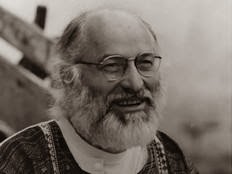
Spiritual research, without an instructor pointing the way, presents itself as a titanic enterprise, almost impossible. It is as if an explorer who has to cross the jungle had the choice: either to have an expert guide to accompany him on the journey and, on the way, learn the dangers that infest the jungle, or try to know in advance any danger that nestles in the jungle, with the purpose then to avoid it. Certainly the second hypothesis is much more uncertain and almost destined to failure, and only if the explorer has an innate and strong intuition, beyond a strong will, then he can hope for an happy success.
From this it emerges the extreme importance of the Guru who acts as a guide along the path of self-knowledge. And the first step must be taken trying to understand the function of the mind.
The conscious process of individualize oneself is the very function of the mind. The mind is the reflective capacity of the conscience that takes on itself the task of objectification and therefore of the creation of the so-called world of names and forms. Outsourcing is its tendency.
And here we return to the "Guru". the inner Guru is the ability to learn through daily life, in spiritual terms it is the intrinsic ability to recognize the "truth" about our intrinsic nature in all that we manifest or that manifests to us.The Guru in this sense is not a person, therefore, or at least not only a person as he can in any case manifest itself in every form, but the enlightened intelligence that frees us from mental superstructures and religious or moral fictions.
Here I set a concrete example: The love story of the nun Ryonen.
Once upon a time in Japan there lived a beautiful nun named Ryonen, famous for the depth of her intellect and her discriminating attention. A monk who was staying in the same monastery fell madly in love with her and one night he stole into his room. Ryonen was not upset at all and willingly agreed to lie with him. But the next day when the lover came back, she said that at that moment it was not possible... The following day a great ceremony took place in the temple to commemorate the illumination of the Buddha in the presence of a large crowd and several monks who came from afar. Ryonen entered without delay into the full hall and with total naturalness stood before the monk who said he loved her, he completely naked and said: "Here I am, I am ready, if you want to love me you can do it here, now ...".
The monk fled to avoid coming back while Ryonen had cut off the roots of every illusion with that gesture. The story of Ryonen and his total adamant adherence to the truth continues. And who is that inner witness that pushes the seeker to a clean truth, starting from the things of the world: "Master is the one who leads you to be your own Master!"
Ramana Maharshi said: "Know your mind, not to be cheated by the mind" See how many images appear in a dream, how many characters who seek and escape, who love and hate each other? But the dreamer is only one...
To awaken to yourself from any point or identity you recognize yourself in the dream, accept that, stop at that and from there observe and discover the observer. Do not wait to deceive yourself that you can wake up if you're dreaming of being someone else, a more prepared or nicer character...
Whatever the character of the dream in which you find yourself, accept it.
Osho said: "Accepting for what we are is the basis for spiritual awakening". In fact, accepting does not mean renouncing one's own growth, on the contrary it means that we accept to grow starting from what we are. In this way growth will not be a choice but a spontaneous movement.It is the flowering of the intrinsic perfection that finds an expressive form, without effort, without anger or frustration, without sacrifice, without the use of memory, without expiation, without hope...
Can you then tell me where is the suffering, that self-control, that has accompanied your research so far? Where is the projective utility of the self seeking itself? How many are the "I" in you? Where is that one who seeks and the other who is sought? Where are the lives spent trudging towards perfection and where are those future lives to complete it? What does it mean "I am young, I am old, I am male, I am a female"? Are you not present here and now, pure consciousness, beyond any external distinction?
And you will always be!
Listen, you are always, absolutely, and anyone that in your dream says something sensible, you say it. Recognize that message as yours, look at the moon and leave your finger, discover the essence and do not be deceived by the reflection.
And finally remember: "The Guru belongs to you completely but do you belong completely to the Guru?" (Swami Muktananda)
Paolo D'Arpini

Testo italiano
La ricerca spirituale, senza un istruttore che indichi la via, si presenta come impresa titanica, quasi impossibile. E’ come se un esploratore che deve attraversare la giungla avesse come scelta la possibilità: o di avere una guida esperta che lo accompagni nel viaggio e, strada facendo, apprendere i pericoli che infestano la giungla, o cercare di conoscere anticipatamente ogni pericolo che si annida nella giungla, con lo scopo poi di evitarlo. Certamente la seconda ipotesi è molto più incerta e quasi destinata al fallimento, e solo se l’esploratore possiede un’innata e spiccata intuizione, oltre una forte volontà, allora può sperare nella felice riuscita.
Da ciò si evince l’estrema importanza del Guru che funge da guida lungo il sentiero dell’autoconoscenza. E il primo passo va compiuto cercando di comprendere la funzione della mente.
Il processo dell’individualizzazione della coscienza è la funzione stessa della mente. La mente è la capacità riflettente della coscienza che assume su di sé il compito dell’oggettivazione e quindi della creazione del cosiddetto mondo delle forme. L’esteriorizzazione è la sua tendenza.
E qui ritorniamo sul discorso del “Guru”. il Guru interiore è la capacità di apprendere attraverso la vita quotidiana, in termini spirituali è la capacità intrinseca di riconoscere la “verità” sulla nostra natura intrinseca in tutto ciò che noi manifestiamo o che a noi si manifesta.
Il Guru in tal senso non è una persona, quindi, o perlomeno non soltanto una persona visto che comunque può manifestarsi in ogni forma, bensì l’intelligenza illuminate che ci libera dalle sovrastrutture mentali e dalle finzioni religiose o morali.
Qui pongo un esempio concreto: La storia amorosa della monaca Ryonen.
Un tempo in Giappone viveva una bellissima monaca di nome Ryonen, famosa per la profondità del suo intelletto e per la sua discriminante attenzione. Un monaco che stavo nello stesso monastero si innamorò perdutamente di lei ed una notte si introdusse furtivamente nella sua stanza. Ryonen non si turbò affatto ed accettò volentieri di giacere con lui. Ma l’indomani quando l’innamorato si ripresentò ella disse che in quel momento non era possibile… Il giorno seguente si svolgeva nel tempio una grande cerimonia per commemorare l’illuminazione del Buddha alla presenza di una gran folla e di parecchi monaci venuti da lontano. Ryonen entrò senza indugi nella sala colma e con totale naturalezza si pose di fronte al monaco che diceva di amarla, si denudò completamente e gli disse: “Eccomi, sono pronta, se vuoi amarmi puoi farlo qui, ora…”.
Il monaco se ne fuggì per non far più ritorno mentre Ryonen con quel gesto aveva reciso le radici di ogni illusione. La storia di Ryonen e la sua totale adamantina aderenza alla verità continua.
E chi è quel testimone interiore che spinge il cercatore verso una verità pulita, a partire dalle cose del mondo: “Maestro è colui che ti porta ad essere il tuo stesso Maestro!”
Diceva Ramana Maharshi: ”Conosci la tua mente, per non farti imbrogliare dalla mente” Vedi quante immagini appaiono in un sogno, quanti personaggi che si cercano e si sfuggono, che si amano e si odiano? Ma il sognatore è uno solo….
Per risvegliarti a te stesso da qualsiasi punto o identità ti riconosci nel sogno, accetta quella, fermati a quella e da lì osserva e scopri l’osservatore. Non aspettare illudendoti che potrai svegliarti se stai sognando di essere qualcun altro, un personaggio più preparato o più simpatico…
Qualsiasi sia il personaggio del sogno nel quale ti ritrovi, accettalo.
Osho diceva: “Accettarsi per quel che siamo è la base per il risveglio spirituale”. Infatti accettarsi non significa rinunciare alla propria crescita, anzi vuol dire che accettiamo di crescere partendo da ciò che siamo. In questo modo la crescita non sarà una scelta bensì un moto spontaneo.
E’ la fioritura dell’intrinseca perfezione che trova una forma espressiva, senza sforzo, senza rabbia o frustrazione, senza sacrificio, senza uso della memoria,senza espiazione, senza speranza…
Puoi dirmi allora dove si pone, a cosa serve, quella sofferenza, quell’autocontrollo, che sin’ora ha accompagnato la tua ricerca? Dov’è l’utilità proiettiva dell’io che cerca se stesso? Quanti sono gli “io” in te? Dov’è quell’uno che cerca e l’altro che è cercato? Dove sono le vite trascorse arrancando verso la perfezione e dove sono quelle vite future per completarla? Cosa significa “io sono giovane, io sono vecchio, io sono maschio, io sono femmina”? Non sei tu presente qui ed ora, pura coscienza, aldilà di ogni distinzione esteriore?
E sempre lo sarai!
Ascolta, tu sei sempre, assolutamente, e chiunque nel tuo sogno dica qualcosa di sensato, sei tu a dirlo. Riconosci quel messaggio come tuo, guarda la luna e lascia stare il dito, scopri l’essenza e non lasciarti ingannare dal riflesso..
E per finire ricorda: “Il Guru ti appartiene completamente ma appartieni tu completamente al Guru..?” (Swami Muktananda)
Paolo D’Arpini


Nessun commento:
Posta un commento
Nota. Solo i membri di questo blog possono postare un commento.